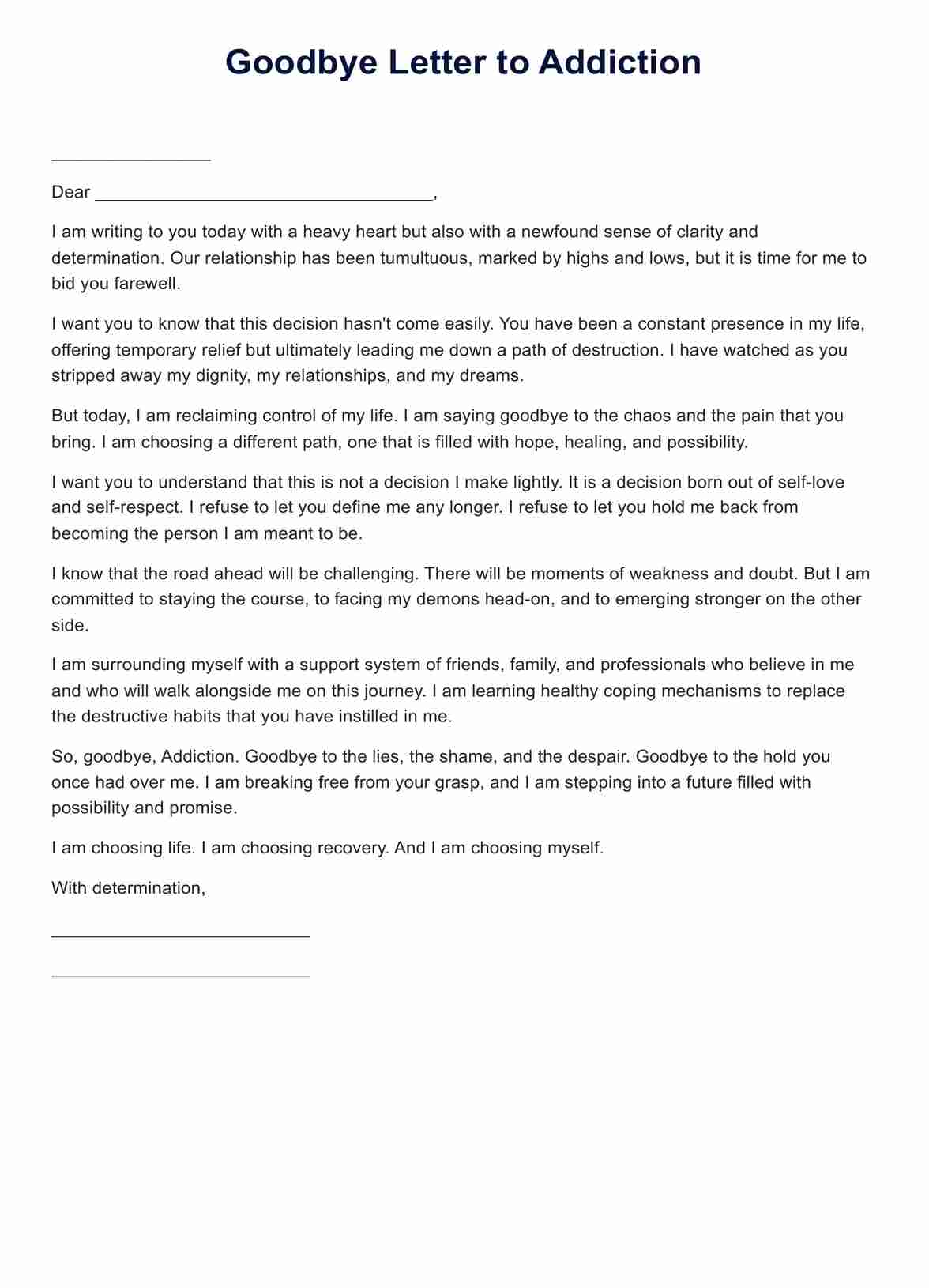Addiction recovery programs offer a variety of therapies, such as pharmacotherapy, psychosocial or psychological interventions, and behavioral therapies aimed to address individual needs and challenges.

Goodbye Letter to Addiction
Overcome addiction with our Goodbye Letter to Addiction template. Reclaim your personal and professional life for long-term recovery. Download now!
Goodbye Letter to Addiction Template
Commonly asked questions
The duration of addiction recovery programs varies depending on factors such as the severity of addiction, individual progress, and program structure, with programs ranging from 30 days to several months or even longer for comprehensive, long-term care.
Yes, many addiction recovery programs include family therapy sessions and involve family members in treatment planning and education to support the individual's recovery process and address familial dynamics impacted by addiction.
EHR and practice management software
Get started for free
*No credit card required
Free
$0/usd
Unlimited clients
Telehealth
1GB of storage
Client portal text
Automated billing and online payments











